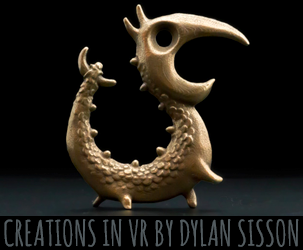
Bruno Coulais
Award-Winning Composer and Musician, Coraline, Wendell & Wild
"In cinema, the composer must enter into directors' world, but without giving up his own. This is the difficulty or paradox of music to image. By collaborating with filmmakers from a wide variety of backgrounds, by ricochet I think I have discovered a lot about myself. It helped me to progress, to explore territories that were not naturally mine. Cinema is a laboratory where I have sought to build new orchestral sets-up combining Corsican polyphonies, musicians from jazz, variety, classical, or even rappers. Like today's world, a fragmented world where all cultures mix." This is how Bruno Coulais, one of the most innovative composers of contemporary cinema, expressed himself during the tribute paid to him at the Cinémathèque de Paris.
In 1978, Bruno Coulais, young composer of concert works, discovered in film music an additional means of expression. He first morked with François Reichenbach, Josée Dayan, Jacques Davila, Laurent Heynemann.
In 1995, Bruno Coulais composed the music for Microcosmos. This initiatory journey on a centimeter scale is the perfect opportunity for him to reveal the full dimension of his writing. He injects into his score a strange lyricism, between wonder and fantasy, confirming the lesson learned from Reichenbach: to any documentary image, music brings a part of fiction. He is awarded the Cesar for best film score, as well as a Victoire de la Musique award.
This reputation was confirmed with the film score for Himalaya in 1999, which earned him a 2nd Cesar, and Les Rivières pourpres in 2000.
The success of Microcosmos will make him the essential composer of other natural tales, notably alongside Jacques Perrin (Winged Migration, Oceans, Seasons…). Other long-term relationships will be established, in particular with Benoît Jacquot, James Huth and Jean-Paul Salomé, Alain Chabat. He also worked on Bertrand Tavernier’s My journey Through French Cinema and Patrice Leconte's Maigret.
In addition to major popular hits such as The Chorus (both film and music nominated for Oscars), it is hardly surprising that his insatiable curiosity has found the most inspiring playground into animation cinema, The Boy Who wanted to Be a Bear, Max and Co, Mune: Guardian of the Moon, Tall Tames from the Magical Garden of Antoon Krings.
And particularly through his collaborations with two exceptional directors, Henry Selick and Tomm Moore. The first, American director of The Nightmare Before Christmas, invites Bruno Coulais to compose the score of Coraline a stop-motion marvel based on the book by Neil Gaiman. The film is nominated for an Oscar and wins several Annie Awards, including one for music.
Recently, he collaborated with Selick again for the score of Wendell and Wild, another masterpiece of stop-motion.
For the inventive and poetic Irish director Tomm Moore, Bruno Coulais has composed the music for three Oscar-nominated films, The Secret of Kells (2009) and Song Of the Sea (2014) and Wolfwalkers' score in 2020. Each of the three scores are nominated for Annie Awards.
Bruno Coulais has taught composition for image at the Conservatoire National Supérieur de Musique et de Danse in Paris.
Whether it is a question of auteur films or mainstream films, Bruno Coulais keeps the same high standards, always envisages his art as a window opens on the world. Much less wise than he seems, he reveals a gift of a modern alchemist and a very personal way of mixing the most diverse cultures in a universal harmony at work.

























